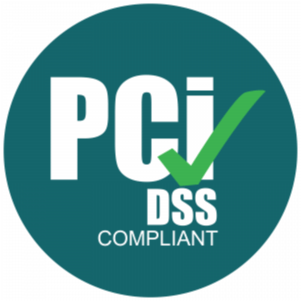Many organizations are turning to enterprise key management system (KMS) solutions to streamline the way they manage critical security processes, security, authentication, and more. But how do these solutions work? And do they offer the same level of security?
What Is an Enterprise Key Management System (Enterprise KMS)?
An enterprise key management service is a key management service provided for enterprise usage. Large companies need proper key management to better manage the security processes within their organization.
With an effective KMS solution in place, employees can better:
- Access keys
- Encrypt keys
- Decrypt keys
- Digitally sign keys
- Send public keys to external individuals and companies
- Ensure keys are compatible with operating systems like Windows, MacOSX, and Linux
- Ensure keys are compatible with cloud platforms like Google Cloud, AWS, and Microsoft Azure
Enterprise key management services allow clients to easily manage their keys without the headache of doing so manually. Enterprise key management services are optimal for clients with multiple teams that require global access or clients that do not have local facilities or networks to facilitate key management. Some examples include multinational corporations, decentralized teams, and clients that travel extensively for work purposes.
What Is a Key Management Service (KMS)?
Key management service provides clients with a single point of access and authentication to manage their keys over multiple cloud platforms and operating systems.
Keys can be accessed globally by authorized and authenticated users. Users can utilize administrator-level access to encrypt and decrypt keys and add digital signatures to keys for non-repudiation.
Key management services are optimal for clients that require simple and affordable access to digital keys but do not have the staffing or resources to manage their keys.
What Is Cloud Key Management?
Cloud key management allows clients to access and control keys on various cloud platforms and operating systems. Keys can be sent and received over the cloud and accessed remotely by different clients’ DevOps team members, project managers, and executives that require access to applications.
With proper cloud key management, clients can avoid setting up specific key management strategies with each cloud provider. Instead, clients can access multiple platforms from one provider—the vault management provider. This transfers risk to the cloud service provider.
Cloud key management is optimal for clients that require low downtime, have limited knowledge of key management, and need global access to keys. Cloud-based service providers can provide increased privacy and security for both public and private key management.
What Is a Hardware Security Module (HSM)?
A hardware security module (HSM) is a device that performs key management. HSMs keep your keys safe, encrypt and decrypt them, and even digitally sign your keys for increasing security.
HSMs can either be purchased as standalone devices or as a plug-in device that you can attach to a server or computer on your network.
Cloud service companies offer cloud-based HSM services, where you can manage your HSM needs on the cloud rather than on your physical network. Lower starting costs and ease of use make cloud service an attractive HSM choice. Cloud-based services are also geography-independent, whereas, with a physical HSM, you require access to a physical network.
HSMs, whether physical or cloud-based, provide increased security for your digital keys. HSMs are optimal for clients that want maximal security for their keys, often viewed in a layered cybersecurity defense strategy. Layers of redundancy are essential for any strategic cybersecurity policy. HSMs can be combined with computers, servers, and even firewalls on a network to add an essential layer of security regarding key management, security, and privacy.
[sc name=”glossary-cta-sm”][/sc]Secrets Management vs. Key Management System
The difference between secrets management versus key management lies in the difference between secrets and keys. Secrets are digital credentials that provide users with access to online data and applications, while keys (such as encryption keys) are just one type of secret. Other types of secrets include passwords and SSH certificates.
The difference between secrets management and key management depends on whether a cloud service provider is offering to manage just your keys or all types of digital secrets and data.
Should I Choose KMS or Secrets Management Services?
A secrets management platform is optimal for clients that require key management, in addition to other secrets management.
Consider secrets management to be an all-in-one service, while key management is optimal for clients that only require key management and do not plan to expand their key management to other forms of digital secrets.
If a client only requires key management but is unsure whether they will require secrets management for future use, both secrets management or key management are effective choices.












